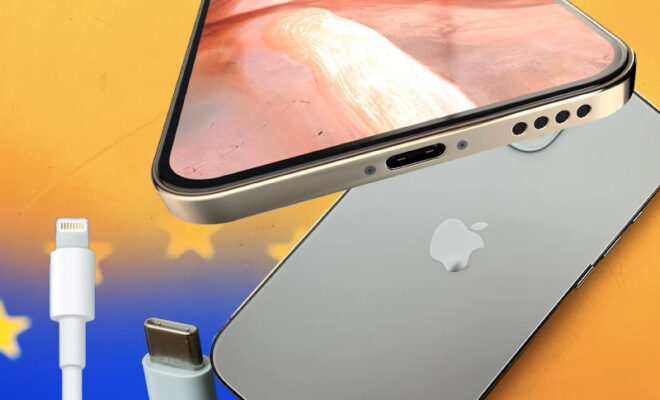iPhone Models to adopt USB Type-C Ports to Comply With European Union Law

Last updated on October 27th, 2022 at 01:45 pm
According to Apple’s marketing chief Greg Joswiak, the company will need to change the iPhone to a USB Type-C charger in order to comply with a European Union legislation. According to Joswiak, the business will abide by the law as it does with all others. When the iPhone might get the charger to replace Lightning, he chose not to say. At a Wall Street Journal conference in Laguna Beach, California, he said such things.
He recalled how European officials had once pushed Apple to switch to Micro-USB and said that Apple and the EU had been at conflict over chargers for a decade. According to him, if the move hadn’t taken place, neither Lightning, the current iPhone charging port, nor the widely used USB Type-C would have been created.
According to Bloomberg News, Apple intends to transition the iPhone to USB Type-C next year. In 2024, the law will become operative. Apple has already switched from Lightning and other ports to USB Type-C for its Macs, numerous iPads, and accessories.
Joswiak concurred with Snap founder Evan Spiegel in rejecting the notion that the metaverse, a virtual environment, will be the direction of computing in the future.
Joswiak described the metaverse as a “term I’ll never use.”
The project has received billions of cash from Mark Zuckerberg, who has even changed Facebook’s corporate name to Meta Platforms Inc.
Craig Federighi, Apple’s senior vice president of software engineering, was questioned about upcoming modifications to other Apple products, including whether a touchscreen would ever be added to the Mac.
Who is to judge? He answered.
Another contentious statement made by Federighi was that an Android version of iMessage, the messaging app found on Apple devices, would stifle innovation for iMessage on iOS. Apple would be unable to make significant investments in an Android version.
Both Federighi and Joswiak claimed that Apple had profited from getting workers back to the office, a move that many other companies had avoided due to employee resistance.
Federighi claimed that the pandemic left many individuals feeling isolated and that the company is more productive once everyone is reunited. He continued, “Being in the same place together has always been important to Apple’s culture.



